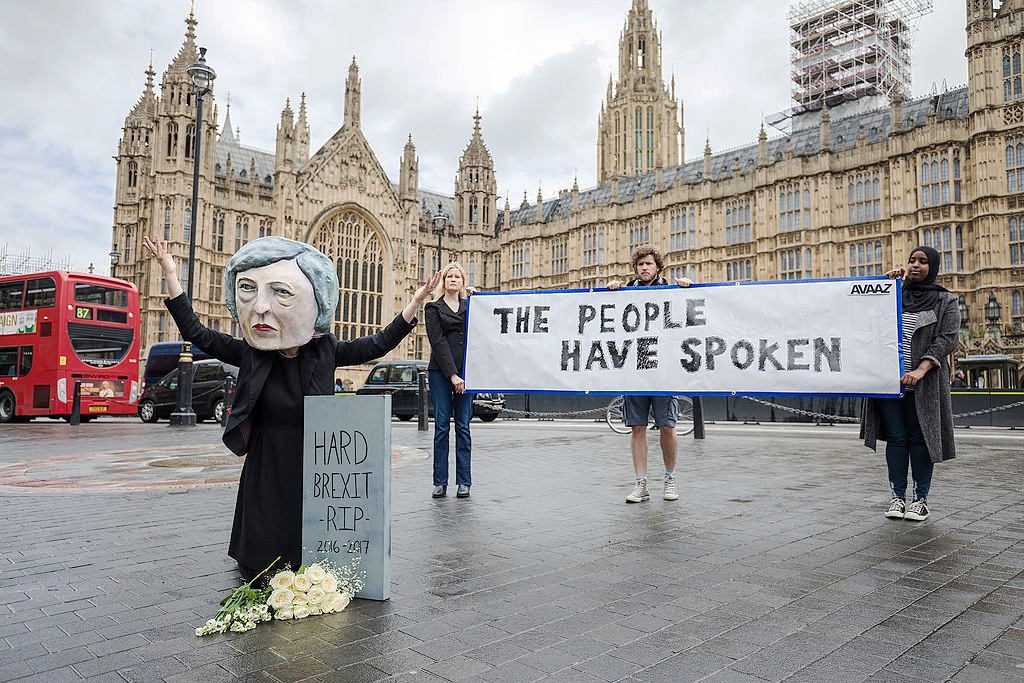Let’s clear up some of the animosity. A no-deal is so completely unlikely. Yes, there are significant obstacles to make our way over, as a country, but both sides (the UK and the EU) have self-interests in securing some kind of deal. In fact, the whole notion of a “deal” is quite misleading. When you consider a dealing process, if “no deal” is made, you go back to your position that you were in before. With Brexit, if we have a no deal, the array of regulations and laws that we follow will just disappear. Politicians will prevent this from happening in every possible way.Do you think a no deal Brexit is possible?
— kt (@ktanderton) November 1, 2018
Owen Jones, a Guardian columnist and political writer tweeted; “We need to stop hyping up No Deal, as someone who has been guilty of doing it myself. It’s not impossible, but it’s very unlikely, and it’s being used to try and coerce MPs to back whatever pants Brexit deal Theresa May cooks up.” We, as a country, should expect more instead of following a “no deal is better than a bad deal” Brexit, and we should not be scared into accepting any less. With all things considered, Britain did choose to leave the EU – so, that we will do. The best-case scenario would be to follow the Norway model. Norway has rejected membership to the EU twice now, but continues to have close relationships with other EU countries. They’re excellently tied to the EU’s market, without any strings attached. However, the term “Norway model” doesn’t just apply to Norway. It’s the name given to a country that’s a member of the European Economic Area, an extension of the EU’s internal market. In order to join the European Economic Area, Britain needs to first join the European Free Trade Association. [caption id="attachment_5511" align="aligncenter" width="696"]We need to stop hyping up No Deal, as someone who has been guilty of it doing it myself. It’s not impossible, but it’s very unlikely, and it’s being used to try and coerce MPs to back whatever pants Brexit deal Theresa May cooks up.
— Owen Jones🌹 (@OwenJones84) October 24, 2018
 Activists from global citizens´movement Avaaz with Theresa May puppet mourning at the grave of hard Brexit. (June 2017). Photo by: Avaaz.[/caption]
The real question is; can Britain adopt the Norway model? In short, yes. Britain can absolutely adopt the Norway model – they would just have to make a financial contribution. There is really no reason why Britain couldn’t join either.
Why aren’t we? Well, joining these does mean that Britain would have to accept EU immigration – something that Theresa May is not willing to do. After all, the main reason the public voted to leave was regarding immigration rules. Britain would also have to abide by many of EU’s laws and regulations.
The issue is, it may be difficult to convince Brexit ministers, the voters and EU politicians that Britain’s deal would mean the country remains one that follows EU rules and allows free movement. Doesn’t that go against all of the leave campaign’s original objectives of Brexit, anyway?
It might be hard to convince politicians on the Norway model, but it should be used as hope. Hope that Britain can have a good deal, that we don’t have to settle for a cataclysmic no deal, or a bad deal. MP's and the British public do not have to accept just anything. It will affect us, after all.
That in itself, is reason enough to believe that Brexit isn’t all doom and gloom. A no deal is unlikely, and the alternatives aren’t too shabby either.
Activists from global citizens´movement Avaaz with Theresa May puppet mourning at the grave of hard Brexit. (June 2017). Photo by: Avaaz.[/caption]
The real question is; can Britain adopt the Norway model? In short, yes. Britain can absolutely adopt the Norway model – they would just have to make a financial contribution. There is really no reason why Britain couldn’t join either.
Why aren’t we? Well, joining these does mean that Britain would have to accept EU immigration – something that Theresa May is not willing to do. After all, the main reason the public voted to leave was regarding immigration rules. Britain would also have to abide by many of EU’s laws and regulations.
The issue is, it may be difficult to convince Brexit ministers, the voters and EU politicians that Britain’s deal would mean the country remains one that follows EU rules and allows free movement. Doesn’t that go against all of the leave campaign’s original objectives of Brexit, anyway?
It might be hard to convince politicians on the Norway model, but it should be used as hope. Hope that Britain can have a good deal, that we don’t have to settle for a cataclysmic no deal, or a bad deal. MP's and the British public do not have to accept just anything. It will affect us, after all.
That in itself, is reason enough to believe that Brexit isn’t all doom and gloom. A no deal is unlikely, and the alternatives aren’t too shabby either. 
